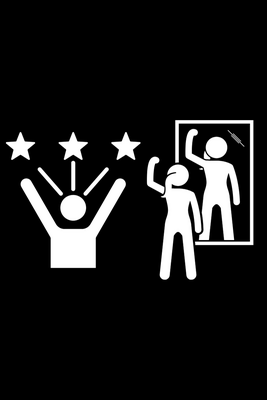
Confidence. One of the key characteristics that separate the successful from the unsuccessful. It is our degree of certainty that we can achieve our goals. Confidence influences the lens in which we think and feel about things. The more confident we are, the better we view situations.
Our levels of confidence impact how we think, feel and behave, ultimately influencing the goals we set and the choices we make.
High levels of confidence mean we don't avoid many situations and tend to set more challenging goals and commit fully to them, which leads to performance improvements.
Low levels of confidence can lead to us avoiding more situations as we view them as being outside of our capability.
Some of the benefits of high self-confidence are:
Robust confidence is what you should strive for. This is the confidence that is so strong it can withstand the adversity, setbacks and challenges you will face. This is the confidence that will keep you going even when you should be having doubts. Despite this, robust confidence isn't usual and we often find confidence levels fluctuating all the time.
We can go from feeling super confident in one game to feeling low on confidence in another. You might even venture into feeling over-confident. Our confidence levels require nurturing.
The question to consider is, where can we get confidence from?
There are many sources we can gain confidence. Here are 12 sources:
You should try and gain confidence from all these sources. Tap into the ones that stick out for you. However, I want to highlight the top two, which are the most robust sources of confidence.
These two consist of having mental evidence that you can do what is needed to be done. Mastery and preparation can provide this evidence.
Mastery of previous performances or skills are the things you have done in training or competition. For example, you ran a PB in training. That is direct evidence. You have already done the things that need to be done on competition day. Mastery experiences provide the most powerful tool for creating belief and are foundational for the other elements of confidence. This knowledge you can do the things you need to do is crucial. It becomes self-fulfilling, allowing confidence to slowly grow over time which pushes you to try more challenging things. This source of confidence is so robust that even one bad competition won't diminish your confidence significantly as you will perceive it as a learning opportunity.
Extensive preparation means you have covered everything leading up to a competition. Sounds simple but it provides a huge amount of confidence when it comes to competition day. Focus on ensuring each element is covered, such as skill development, physical training and mental training. You also need to consider the logistical elements of your competition so nothing is left down to chance. You don't want your performance being hindered by something as silly as getting lost on the way to a venue or forgetting a piece of equipment like your running shoes! Being mentally, physically, skillfully and logistically prepared will enable you to focus positively on your performance and provide a robust source of confidence.
Our confidence levels aren't limited, we have the potential to grow it. Become aware of the sources which you can gain confidence from and then practice the skills that help to develop it. Focus on the robust sources first and then add additional ones.
Thank you for reading! If you have any questions, or comments, or would like to explore how sports psychology can enhance your performance, feel free to reach out to me at drodgerssportpsych@gmail.com or give me a call at 07475 925 292. You can also check out my website by clicking this link https://www.thesportingbrain.com/. I'm here to help you unlock your full potential.
1. Register your company
2. Create a searchable listing
3. Connect with more clients
